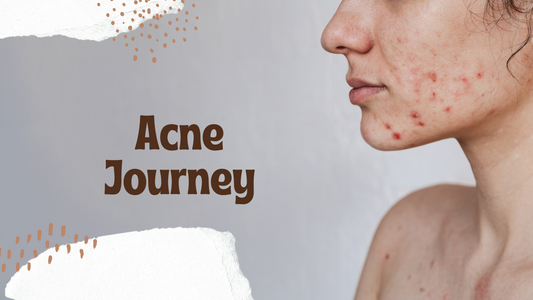1. Introduction
The skincare and pharmaceutical industries rely on different manufacturing models to bring products to market. Brands can choose from white labeling, third-party manufacturing, or in-house manufacturing, each with its own advantages and limitations.
At Formial Labs, we believe that in-house manufacturing is the future of personalized dermatology, especially for compounded skincare formulations. By maintaining complete control over ingredient selection, formulation processes, and quality assurance, we ensure that every product meets the highest dermatological and regulatory standards. In fact, we believe in this so much that we have collaborated with partners all over the world and spent hundreds of hours in RnD to develop a completely independent and in-house manufacturing model.
This blog will explore the differences between these three manufacturing models and highlight why in-house compounding is the superior choice for advanced skincare solutions.
2. White Labeling: The Mass-Market Approach
What is White Labeling?
White labeling involves purchasing pre-formulated skincare or pharmaceutical products from a manufacturer and rebranding them as one’s own. Many over-the-counter (OTC) skincare brands rely on this method to quickly introduce products to the market without investing in research, development, or production facilities.
Pros & Cons
Pros:
-
Low investment and quick time-to-market.
-
No need for in-house R&D or regulatory compliance.
Cons:
-
Limited customization—brands cannot modify formulations to address specific skin concerns.
-
Lack of exclusivity—multiple brands may sell identical products under different names.
-
Lower quality control—since the formulation is mass-produced, brands have no direct control over ingredient quality or production standards.
Example in Skincare
Many OTC brands use white-labeled products from large cosmetic manufacturers that produce generic formulations. These brands simply change the packaging and marketing but offer little differentiation in terms of product efficacy.
3. Third-Party Manufacturing: A Middle Ground
What is Third-Party Manufacturing?
Third-party (contract) manufacturing allows brands to work with an external manufacturer to produce skincare formulations. Unlike white labeling, brands may have some say in formulation customization, but the production process remains outsourced.
Pros & Cons
Pros:
-
Greater flexibility in formulation compared to white labeling.
-
No need to invest in manufacturing infrastructure.
Cons:
-
Limited control over raw materials and production processes.
-
Quality assurance depends on the third-party manufacturer.
-
Potential supply chain issues—delays, inconsistencies, and regulatory risks.
Why It Falls Short for Compounded Skincare
Compounded formulations require precise dosages, ingredient stability, and strict hygiene standards. Outsourcing these delicate processes to a third party increases the risk of contamination, degradation, and formulation inconsistencies.
4. In-House Manufacturing: The Gold Standard for Compounded Skincare
What is In-House Manufacturing?
In-house manufacturing means full control over the entire production process, from ingredient sourcing to formulation, testing, and packaging. This is essential for compounded skincare, where precision and quality are non-negotiable.
Why Formial Labs Chooses In-House Compounding
At Formial Labs, we prioritize scientific accuracy, personalization, and safety. By maintaining our own manufacturing processes, we ensure:
1. Uncompromised Quality Control
-
Stringent raw material selection: Every ingredient undergoes rigorous quality checks before use.
-
Real-time monitoring: Every formulation batch is monitored for potency, stability, and sterility.
-
Elimination of cross-contamination risks: Unlike third-party manufacturers, we maintain pharmaceutical-grade hygiene standards.
2. Personalized Formulations with Clinical Precision
-
Every product is freshly compounded based on the patient’s skin type, condition, and prescription.
-
Active ingredients are optimized for efficacy, reducing the risk of degradation before use.
-
Innovative AI-driven diagnostics allow us to fine-tune formulations for maximum skin compatibility.
3. Full Compliance with Regulatory Standards
-
We follow USFDA, Good Manufacturing Practices (GMP) and CDSCO (Central Drugs Standard Control Organization) guidelines in India.
-
Our formulations undergo microbial testing, pH stability assessments, and dermatological validation before reaching customers. We do not carry out any testing on animals.
5. Why In-House Compounding is the Future of Dermatology
Advancements in Personalized Skincare
-
Data-driven skin diagnostics now enable hyper-personalized treatment plans.
-
In-house R&D facilities allow for continuous formulation improvement based on real-time patient feedback.
-
As consumers become more ingredient-conscious, brands that maintain complete transparency and control over production gain a competitive edge.
Scalability Without Compromise
-
Unlike mass-produced formulations, compounded skincare is meant to be precise, fresh, and targeted.
-
While white-label and third-party manufacturers struggle with maintaining consistent product quality, Formial Labs scales responsibly without sacrificing efficacy.
The Competitive Advantage of Formial Labs
-
Proprietary formulations backed by scientific research and clinical data.
-
Direct dermatologist involvement ensures that products are medically sound and safe.
-
Ethical sourcing of ingredients—no shortcuts, no unnecessary fillers.
6. Conclusion: The Future is In-House, and It’s Personalized
While white labeling and third-party manufacturing offer scalability and cost-efficiency, they compromise on control, customization, and quality—three aspects that are non-negotiable in compounded skincare.
At Formial Labs, we are redefining dermatology in India with in-house compounding, ensuring:
✅ Pharmaceutical-grade quality control
✅ Data-driven hyper-personalization
✅ Dermatologist-approved formulations
✅ Fresh, potent, and clinically effective skincare
For patients seeking real, science-backed solutions—not just mass-market skincare—Formial Labs is setting the gold standard.





